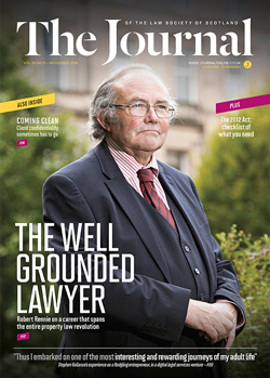Money into thin air?

Bitcoin, the electronic currency, is gradually becoming mainstream – but what is it, and why should family lawyers be interested?
Bitcoin is an online financial system which runs in parallel with established currencies, merging the concepts of email and cash and allowing funds to be transferred instantaneously anywhere in the world for little or no cost. Developments in technology now enable an enormous global network of computers to carry out the role traditionally played by financial institutions of verifying the validity and value of currency units.
The network collectively maintains a single ledger (called the “block chain”), listing every bitcoin transaction that has (or will ever) take place. In other words, the legitimacy of the currency and transactions is ensured by the recording of events on the block chain, creating a permanent and unalterable record which cannot be tampered with and has never been hacked. Security is provided mathematically, so provided you keep your passwords safe, you have complete control of your finances.
Acquiring bitcoins is straightforward. The total number in the system has been mathematically fixed in advance, so you can’t create new ones, but you can “mine” them from the network if you have the knowhow and resources. We ordinary mortals can accept bitcoins directly from another user, get them from a bitcoin ATM (there’s one on Sauchiehall Street), or buy them from an exchange website like Coinfloor or Bitstamp. These sites will convert your sterling, dollars, etc into the equivalent bitcoin value based on the current exchange rate. Once you have your bitcoins you can use them to buy anything from airline tickets to beer and pizza from the growing network of merchants accepting them worldwide. If you want to “cash out”, you just re-convert via an exchange or ATM.
Traceable?
So what does this mean for family lawyers? The most obvious concern is financial provision. Could assets be protected from a claim by converting them into bitcoins?
Hiding assets is nothing new, but traditional disclosure tools don’t work with cryptocurrencies. Holding bitcoins is the online equivalent of burying a suitcase of tenners in the woods at 2am. The only proof of their existence is the cryptographic “private key” which is known only to its owner: there are no legal means of forcing this to be disclosed in a divorce.
Commission and diligence would be of limited use, since no third parties run Bitcoin and hence there are no obvious havers. One could serve a specification on an exchange, but even if jurisdictional complications could be overcome, this would only confirm there was a point of entry. Translating that into a “relevant date” value could require investigative resources well out of reach of the ordinary litigant, plus costly expert evidence.
While bitcoins would be caught by a s 20 order for disclosure, the same problems remain. Persuading a court to sanction for non-compliance could also be difficult, requiring expert evidence to be led. If the assets were substantial enough, a non-disclosing party might decide that a contempt finding was tolerable anyway; the process would eventually come to an end and they could access and re-convert their bitcoins.
Chain of life
Another aspect, with potentially vast ramifications, is the so-called “smart contract”. While this is a complex subject, it essentially rests on the fact that the block chain can be used to record and verify any event, not just a bitcoin transaction. Indeed, one enterprising US couple recently recorded their marriage on the block chain! While that was not a legal marriage as such, the technology is being developed to allow such a record to be stored and linked to other contracts such as a pre-nuptial, property transfer or separation agreement.
In other words, we could develop the technology to record significant life events on the block chain and link to the code required to implement related agreements automatically on key trigger events (such as divorce or death, once recorded and indexed online). This would streamline the contracting process and avoid document authentication problems. Among the potential applications, there is already a website which enables you to transfer your bitcoins automatically to a specified recipient on your death. More are likely to come. Much still remains to be clarified, but it will be worth keeping an eye on this rapidly evolving area.
In this issue
- Age before duty
- Title to tissue
- Standing the test of time?
- Adjudication: a risk of abuse?
- Courts in all but name
- When is a person a “relevant person”?
- Reading for pleasure
- Opinion: John Scott QC
- Book reviews
- Profile
- President's column
- People on the move
- The designated day is here
- A tale of two systems
- LBTT: the rules and rates emerge
- The price of probity
- Play to your strengths
- Into the unknown
- A changing landscape
- Get the basics right
- Holiday pay: give us a break
- Money into thin air?
- Pathways to justice
- Flesh on the bones
- Scottish Solicitors Discipline Tribunal
- Streams of thought
- Over the finishing line
- Over the finishing line (full version)
- Law reform roundup
- The path less travelled
- The right kind of risk
- Frauds and scams – increasing awareness
- Ask Ash
- The process engineer's tale
- To disclose or not to disclose?






